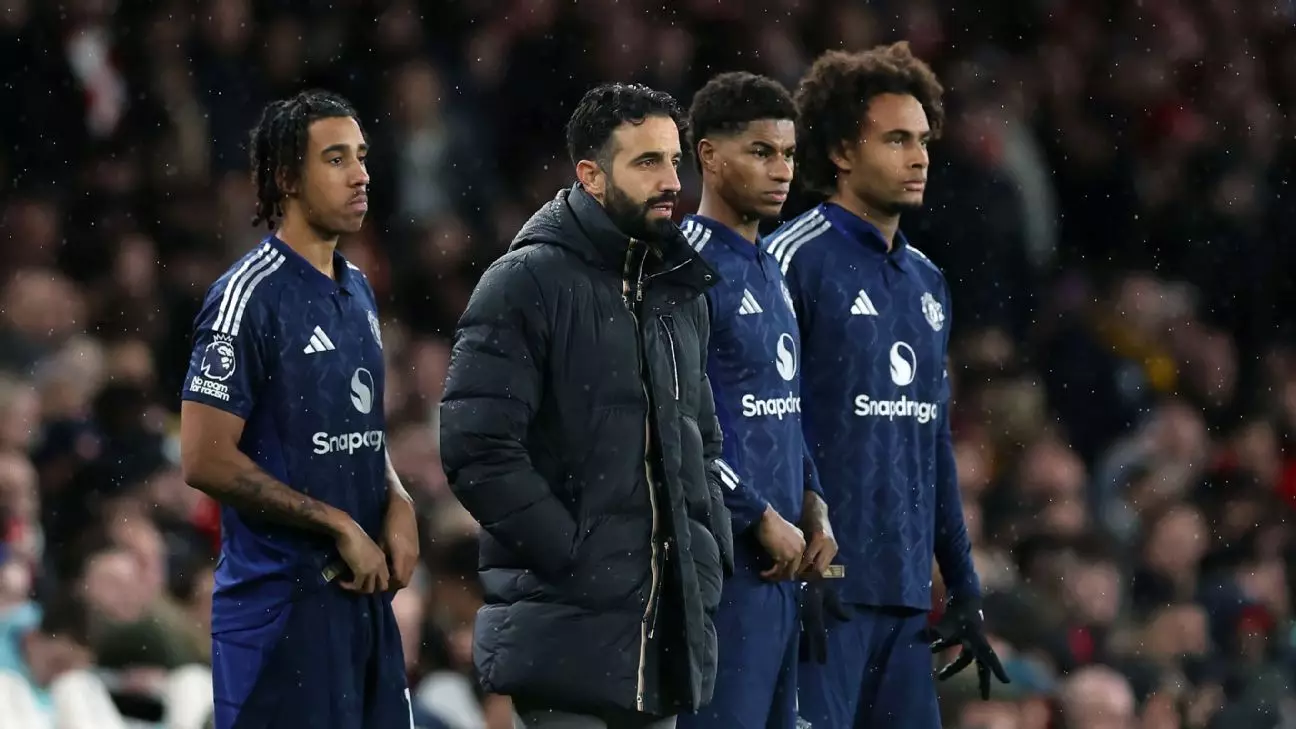In the unforgiving world of football management, the ability to navigate challenges, such as player injuries, is paramount for success. Ruben Amorim, the newly-appointed manager of Manchester United, faced his first significant hurdle when his team succumbed to a 2-0 defeat against Arsenal. This article delves into Amorim’s insights regarding injuries, squad management, and the need for adaptability in his coaching methodology amid challenging circumstances.
The match against Arsenal marked a critical moment for the fledgling leadership of Amorim. The defeat not only emphasized tactical weaknesses but also underscored the impact of injuries on squad performance. Goals from Jurriën Timber and William Saliba, both resulting from corner kicks, illustrated how a lack of fitness and cohesion can lead to defensive lapses. For a manager stepping in with ambitious goals, this was a stark reminder of the reality of the Premier League, where even a small oversight can culminate in costly outcomes.
Amorim revealed a compelling struggle between ambition and caution as he navigated player fitness. He pointedly mentioned that several of his players were on tight “time limits” in terms of their match readiness. With Harry Maguire, Tyrell Malacia, and Mason Mount recently returning from injury, each player’s duration on the pitch had to be meticulously managed to mitigate the risk of further injury. The manager’s approach speaks volumes about the delicate balance between pushing for results and ensuring player health.
He emphasized the necessity to adapt his game plan in accordance with players’ abilities, stating, “We have to manage within games.” This adaptability is crucial, especially in high-stakes environments where every point counts. Nonetheless, the pressure of achieving consistent performances while sidelining players still recovering from injuries can create a complicated atmosphere within the squad.
Positives Amidst the Adversity
In facing his first league defeat, Amorim maintained an optimistic perspective, focusing on the positives gleaned from the match. Despite the final scoreline, he stated, “I make the evaluation of the game regardless of the result.” This approach reflects a managerial philosophy that values learning and growth over immediate success.
Observing the dynamics and momentum shifts during matches can provide critical insights into areas requiring attention. Amorim noted a palpable discomfort among his players, particularly during pivotal moments of the game, which may inform tactical adjustments moving forward. Acknowledging such nuances helps a manager to not only improve future strategies but also to cultivate a resilient mindset among his players.
The Road Ahead for Player Recovery
As attention shifts to player fitness and recovery, Amorim’s approach to managing injuries could play a significant role in shaping the team’s prospects. With Luke Shaw facing yet another injury setback after months of rehabilitation, Amorim’s commitment to provide the necessary support and time for recovery is noteworthy. He stated, “If he continues to do that behavior, he’s a top, top player and we need him.”
Such a sentiment not only showcases a manager’s understanding of player psychology but also reflects a long-term vision for squad depth and stability. Creating a supportive environment where players feel valued and protected fosters loyalty and team spirit, ultimately contributing to the club’s success.
Ruben Amorim’s tenure at Manchester United began with a significant challenge in the form of injury management. While the defeat against Arsenal was a setback, it also served as a crucial learning experience. The balance between immediate results and long-term player management will be vital as Amorim seeks to instill his strategies and build a resilient team. The journey ahead will undoubtedly test his adaptability, but his emphasis on learning from adversity may ultimately pave the way for success in an unpredictable football landscape.

